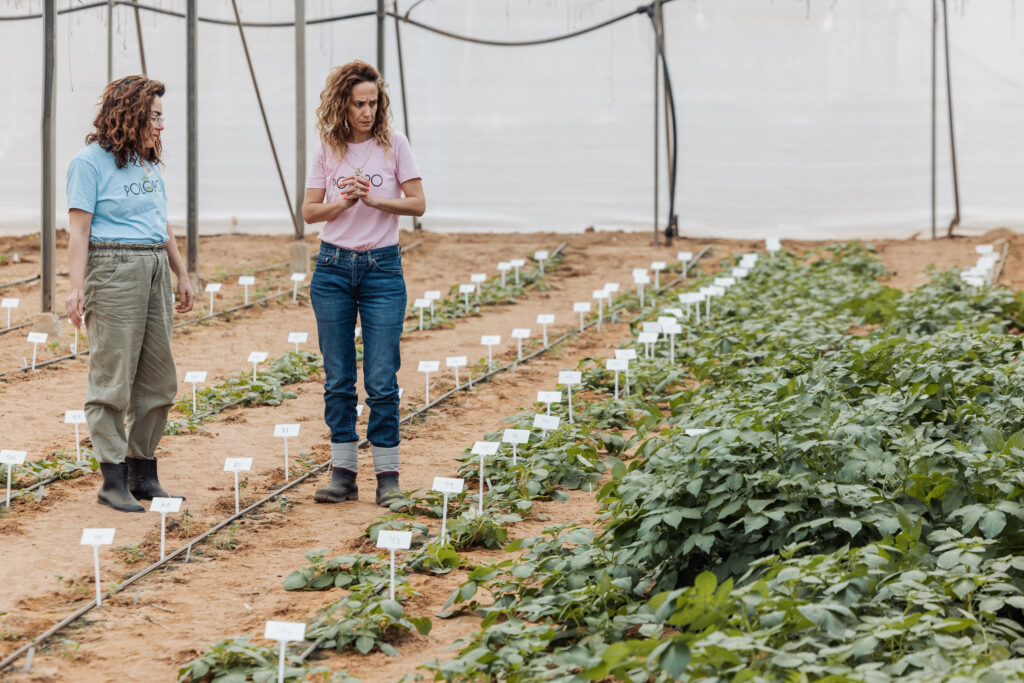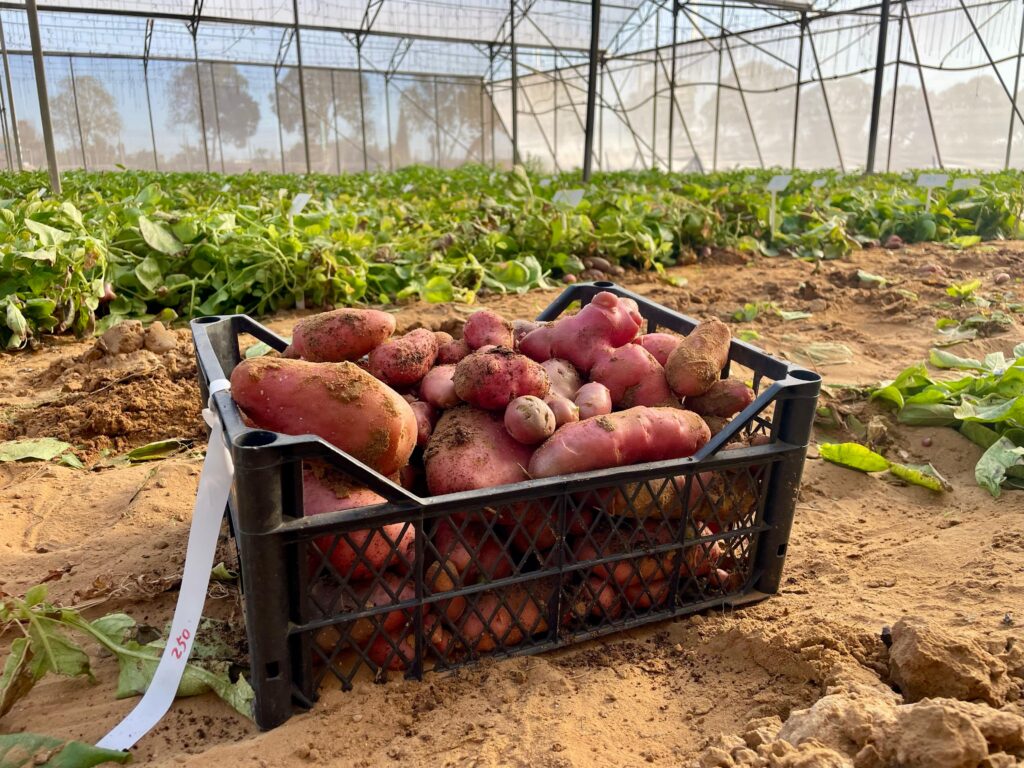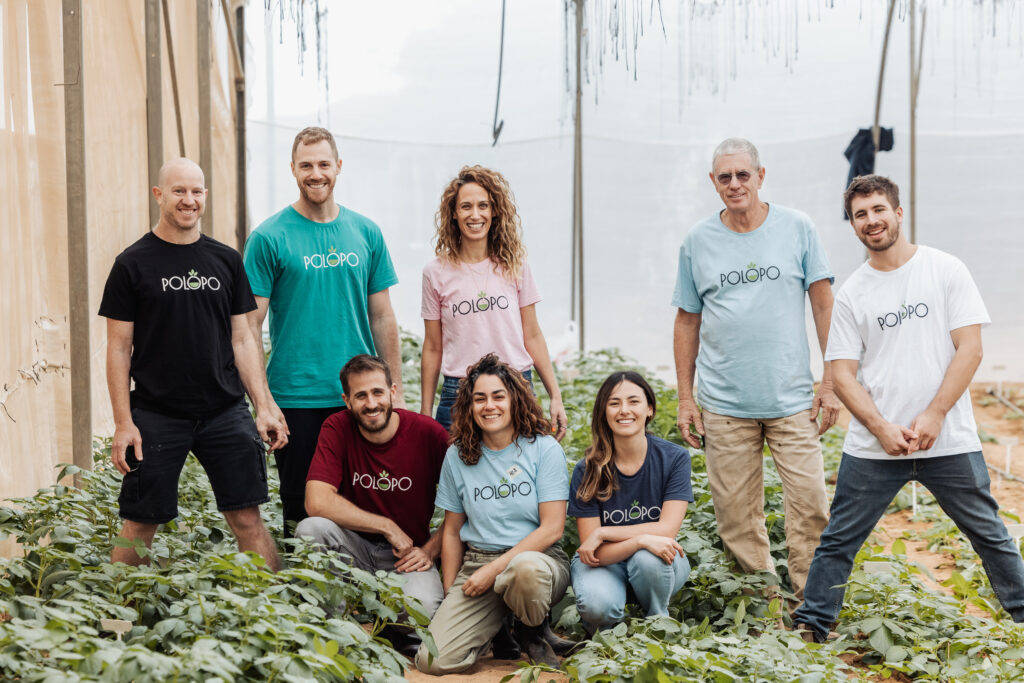
Israeli molecular farming startup has pivoted its business model to develop high-protein potatoes for the chip industry.
Tel Aviv-based food tech firm PoLoPo is aiming to disrupt the $53B potato chip industry and meet the protein moment with its molecular farming platform.
The startup, which turns potatoes into protein factories via molecular farming, had begun as a supplier of ovalbumin (the main protein found in egg) to food industry customers, before diversifying into patatin (the native protein in potatoes).
Now, it is making a strategic shift from producing powdered proteins to supplying high-protein potatoes for the snacking sector. The company expects to receive US approval for its molecular farming platform, called SuperAA, by the end of 2025, allowing it to tackle America’s obsession with both chips and protein.
“We’re still fully committed to our molecular farming platform. However, as we advanced technically and regulatory-wise, we identified an opportunity to get to market faster by using our same core technology to enhance the native protein content in potatoes,” Ido Eliashar, VP of business development at PoLoPo, tells Green Queen.
“Chips allow us to commercialise sooner, reach consumers faster, and prove our platform’s scalability,” he adds. “The egg protein product is still in our roadmap, but chips are the right starting point.”

Why PoLoPo is eyeing the potato chip industry
Founded in 2022 by CEO Maya Sapir-Mir and CTO Raya Liberman-Aloni, PoLoPo chose to work with potatoes due to their resilience in diverse climates, low growth costs, short maturation time, relatively large storage capacity (in the form of tubers), high yields, and compatibility with existing technologies.
Its technology can grow patatin in potatoes through proprietary metabolic engineering techniques. It inserts a DNA sequence into the potato to increase its native protein content. Most manufacturers destroy patatin when extracting potato starch, so most of this protein’s supply on the market is non-functional, usually ending up in animal feed, pet food, cosmetics, and pharmaceuticals.
PoLoPo’s patatin has a high protein digestibility score of 0.99 (similar to that of casein, beef and eggs) and it has all essential amino acids and boasts functional attributes like emulsification, gelling and texturisation.
“Depending on the potato variety we implement our technology into, we can elevate protein content by up to three times compared to standard potatoes,” says Eliashar. “That translates to around 18g of protein per 100g of finished chips.”
PoLoPo’s potatoes require no new processing lines, new equipment or added ingredients, making them a drop-in solution for existing chip producers.
Why chips? They’re a beloved snack that’s eaten everywhere, every day, he says: “The industry is also under pressure to meet rising consumer demand for protein and cleaner labels.”
Indeed, 55% of Americans say protein is the main nutrient they look for when selecting snacks, and among protein bar users, 43% would be interested in protein chips. This chimes with the 85% of consumers who want to increase their intake of the macronutrient this year. It’s why protein snacks are outpacing the overall industry by threefold, valued at $24B.
“With our high-protein potatoes, chip makers can meet those demands without changing the product experience or supply chains,” says Eliashar. “Our technology can be applied to any potato variety, so brands can keep their unique identity while using PoLoPo technology and varieties in the background to boost nutritional value.”

‘Clear, advanced regulatory path’ makes US right place for launch
PoLoPo is now working with manufacturers and brands to bring the first generation of high-protein chips to market, with a pilot programme already underway. “We work with chip brands, processors, and growers. Our goal is to empower existing players to launch better-for-you snacks using our potatoes,” says Eliashar.
“We successfully completed a pilot in Israel that demonstrated our solution is scalable and compatible with conventional growing practices and yields. We’re now working to begin operations in the US with local partners,” he adds. “As part of this expansion, we’re implementing our technology into popular US chip varieties to ensure smooth integration into existing supply chains and manufacturing lines.”
The company has filed for approval under the US Department of Agriculture’s Non-Regulated Status petition. “Because we are not adding a new ingredient but enhancing the crop itself, this path avoids the need for FDA approval when the potatoes are used in whole form, like chips,” Eliashar explains.
PoLoPo closed a $2.3M pre-seed investment round in 2023; it is now currently fundraising further to “expand pilot production and bring our first commercial collaborations to market in the US”.
“The US offers a clear and advanced regulatory path for bioengineered crops and products, and has a massive, innovation-driven snack industry. It’s the right place to launch,” says Eliashar.

Molecular farming modifies plant cells, rather than microbes or animal cells, to grow proteins that can be harvested from leaves or other plant tissues. It doesn’t require expensive bioreactors to produce ingredients on a large scale, since the plants themselves act as the bioreactors. This also means lower prices.
PoLoPo is among a number of brands using this technology to produce proteins. In Israel, Finally Foods is growing casein (the main protein in dairy) in potatoes, while NewMoo is producing liquid casein in soybeans, as is US startup Alpine Bio (through soybeans) and New Zealand’s Miruku (via safflower).
Moolec Science, meanwhile, produces Piggy Sooy (soybeans that contain pork proteins), and PEEA1 (peas that produce bovine myoglobin), among other ingredients.
The post Israel’s PoLoPo Targets High-Protein Potato Chips with Molecular Farming Platform appeared first on Green Queen.
This post was originally published on Green Queen.